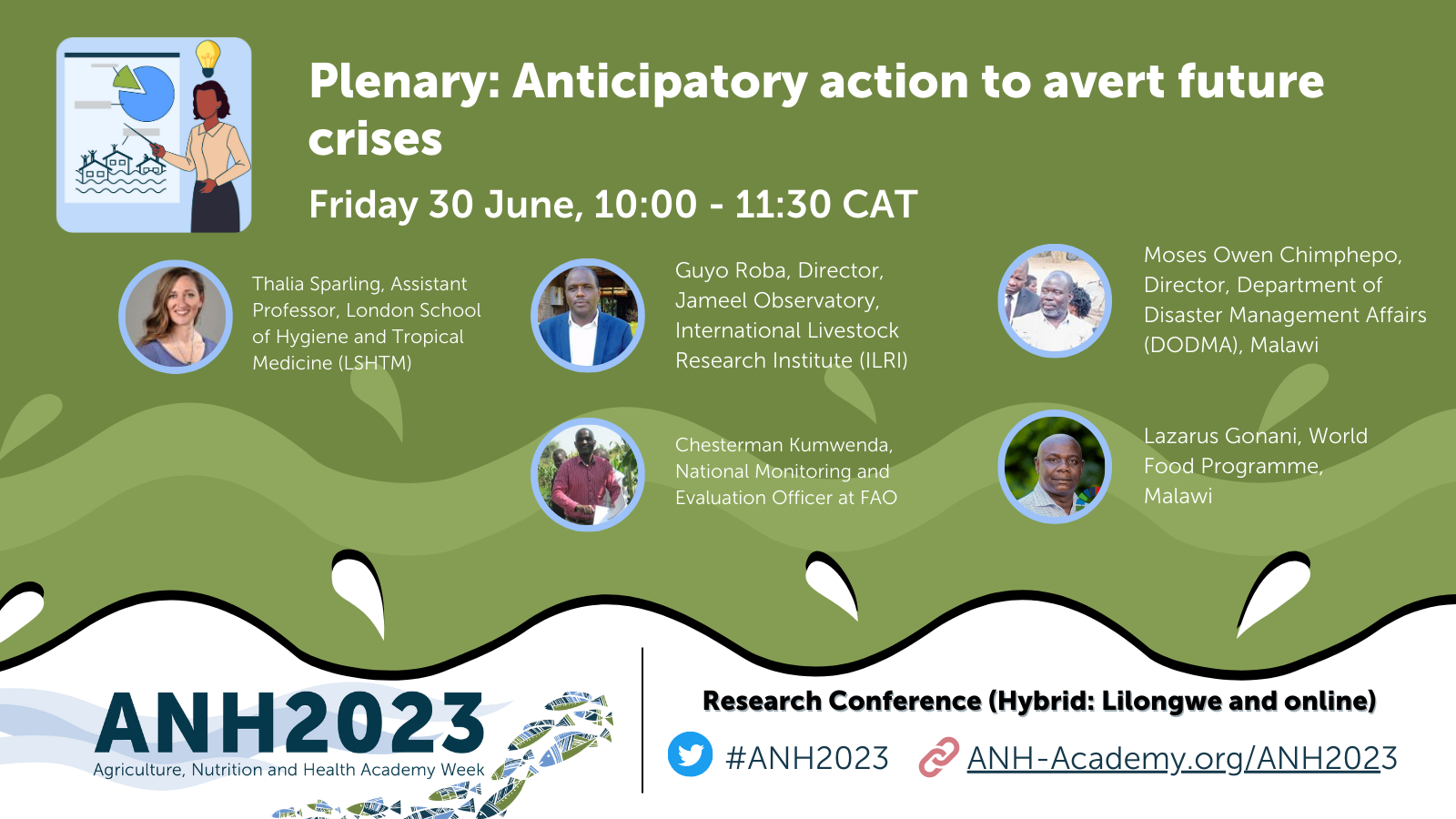
Times for this event are in CAT.
Room: MVUU
Description:
Climate change is making weather events more erratic and extreme, with significant impacts on agriculture, livelihoods and health. Coupled with other shocks that ripple through the global landscape, including conflicts and economic downturns, it is more important than ever to protect and promote resilience among populations at risk while simultaneously seeking to address the social factors that produce vulnerability in the first place.
Anticipatory action is increasingly discussed as a way to predict with greater precision where risk will occur and to trigger early warning systems for releasing necessary resources and actions to avert crises.
But what exactly is anticipatory action? How does it differ from other early warning systems? Where does, and should, the burden of proof lie in demonstrating that a substantiated anticipatory action could or has changed the course of a given situation? What is the role of counterfactuals? What are the moral and ethical considerations of such approaches?
This ANH2023 plenary session brings together diverse perspectives and expertise to explore these questions and more.
Chair
- Thalia Sparling, Associate Professor, London School of Hygiene & Tropical Medicine (LSHTM)
Speakers
- Guyo Roba, Director, Jameel Observatory, International Livestock Research Institute (ILRI)
- Moses Owen Chimphepo, Director, Department of Disaster Management Affairs (DODMA), Malawi
- Chesterman Kumwenda, National Resilience and Emergency Coordination Specialist, FAO Malawi
- Lazarus Gonani, World Food Programme, Malawi
Check out our ANH2023 communications toolkit media toolkit for useful Twitter handles, graphics and other materials.


Comments
IRINE AMDALA
30 Jun 2023